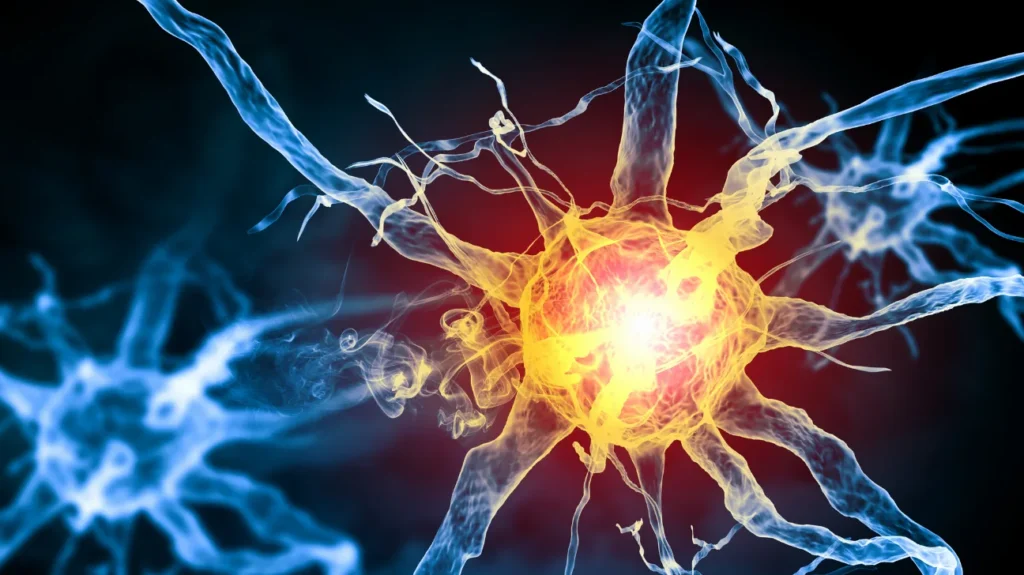Plant sterols, also known as phytosterols, are a group of naturally occurring compounds found in plant cell membranes. They are structurally similar to cholesterol and have garnered interest for their potential health benefits, particularly regarding cardiovascular health and their use as dietary supplements. Recent research has begun to explore the nootropic potential of plant sterols, shedding light on their effects on cognitive function and overall brain health. This article provides an in-depth analysis of plant sterols, discussing their sources, chemistry, physiological mechanisms of action, potential nootropic benefits, dosage guidelines, side effects, drug interactions, and other essential considerations for safe supplementation.
You May Also Like:
Butternut: Benefits, Dosage, Side Effects, Drug Interactions, and Other Important Information
Sources of plant sterols
Plant sterols are found in a variety of foods, primarily in plant-based products. Key sources include:
- Vegetable oils: Corn oil, soybean oil, sunflower oil, and canola oil are rich in plant sterols.
- Nuts and seeds: Almonds, walnuts, and sunflower seeds contain significant amounts of sterols.
- Whole grains: Oats, barley, and wheat germ provide beneficial amounts of plant sterols.
- Fruits and vegetables: Avocados, bananas, and berries are among the fruits with notable plant sterol content.
- Fortified foods: Many margarine and yogurt products are fortified with plant sterols to help consumers achieve adequate intake.
Although most individuals can obtain sufficient plant sterols through a balanced diet, supplementation may be beneficial for those looking to enhance their cognitive function or lower cholesterol levels.

Chemistry of plant sterols
Plant sterols are categorized into two primary groups: sterols and stanols. The most common sterols include sitosterol, campesterol, and stigmasterol, while the primary stanol is sitostanol.
Structural Characteristics
- Sitosterol (C₂₉H₄₈O): This compound has a chemical structure that allows it to incorporate into cellular membranes, thus competing with cholesterol.
- Campesterol (C₂₉H₄₈O): This sterol is similar in structure to sitosterol but differs in the position of a double bond.
- Stigmasterol (C₂₉H₄₈O): It is distinguished by an additional double bond in the B-ring.
The unique chemical structures of these compounds enable them to modulate cholesterol absorption in the intestines, thereby affecting overall cholesterol levels in the bloodstream.
Mechanism of Action
The primary physiological mechanism through which plant sterols exert their effects involves competition with cholesterol for absorption in the intestinal tract. When ingested, plant sterols reduce the uptake of dietary and biliary cholesterol, leading to decreased blood cholesterol levels. This mechanism is thought to be particularly effective in lowering low-density lipoprotein (LDL) cholesterol, a significant contributor to cardiovascular diseases.
Additionally, recent studies have indicated that plant sterols may have antioxidant properties, contributing to their potential neuroprotective effects. They may also modulate lipid metabolism and inflammation, both of which are critical factors in cognitive health.

Physiological mechanisms of plant sterols in the body and brain
Cardiovascular Health
Plant sterols are well-known for their lipid-lowering effects, making them valuable in managing hypercholesterolemia. By displacing cholesterol in micelles, they may prevent cholesterol absorption in the intestine, leading to a reduction in serum cholesterol levels. This cardiovascular benefit could indirectly impact cognitive health, as cardiovascular diseases are often associated with cognitive decline.
Antioxidant Properties
Research has suggested that plant sterols may possess antioxidant properties that can protect brain cells from oxidative stress. Oxidative damage is a significant factor in neurodegenerative diseases such as Alzheimer’s and Parkinson’s. By neutralizing reactive oxygen species (ROS) and enhancing the body’s antioxidant defenses, plant sterols may play a role in maintaining cognitive function.
Anti-inflammatory Effects
Chronic inflammation is another contributing factor to cognitive decline. Plant sterols may modulate inflammatory pathways, potentially leading to decreased neuroinflammation. By reducing the activation of pro-inflammatory cytokines and promoting anti-inflammatory mediators, plant sterols may help maintain a healthier environment for brain cells.

Nootropic Benefits of Plant Sterols
The exploration of plant sterols as nootropic supplements—substances that enhance cognitive function—has gained traction in recent years. While most studies have focused on their cholesterol-lowering properties, emerging evidence suggests several potential nootropic benefits:
- Cognitive Function Improvement
Plant sterols may support cognitive function by reducing oxidative stress and inflammation in the brain. These compounds could help preserve neuronal integrity, leading to improved memory and learning capabilities. The ability of plant sterols to modulate the oxidative environment in the brain allows for better neuronal health, which is crucial for optimal cognitive performance. Additionally, their role in promoting synaptic plasticity may further enhance cognitive abilities, enabling quicker learning and better retention of information. - Mood Enhancement
Some studies indicate that plant sterols could influence neurotransmitter levels, potentially improving mood and emotional well-being. By modulating the levels of critical neurotransmitters such as serotonin and dopamine, plant sterols may contribute to an uplifted mood, which can enhance cognitive performance. A positive emotional state can lead to increased focus and motivation, enabling individuals to engage more effectively in cognitive tasks and learning experiences. - Neuroprotection
The neuroprotective effects of plant sterols may help guard against age-related cognitive decline. By reducing oxidative damage and inflammation, these compounds may support brain health, particularly in older adults. The potential for plant sterols to inhibit neuroinflammation and oxidative stress could delay or mitigate the progression of neurodegenerative diseases, helping to maintain cognitive function throughout the aging process. Studies suggest that plant sterols may also support the repair of damaged neurons, contributing to overall brain resilience. - Enhanced Lipid Profile and Cognitive Health Connection
By improving lipid profiles and cardiovascular health, plant sterols may indirectly benefit brain health. A healthier heart promotes better blood flow to the brain, which is essential for optimal cognitive function. Improved circulation enhances the delivery of oxygen and nutrients to brain cells, supporting various cognitive processes. Additionally, maintaining a balanced lipid profile is crucial for the structural integrity of neuronal membranes, further supporting cognitive performance and overall brain health. - Inflammation Reduction and Cognitive Resilience
Plant sterols possess anti-inflammatory properties that may help bolster cognitive resilience. Chronic inflammation is a known contributor to cognitive decline and neurodegenerative diseases. By mitigating inflammatory processes in the brain, plant sterols may support a healthier cognitive environment. This reduction in inflammation may lead to improved neuroplasticity, allowing the brain to adapt and thrive under various conditions, which is vital for sustaining cognitive function over time.

Dosage and supplementation guidelines
Determining the appropriate dosage of plant sterols for cognitive enhancement or cardiovascular benefits involves several considerations. Current recommendations for plant sterol intake primarily focus on cardiovascular health.
- General Dosage Guidelines: The American Heart Association recommends a daily intake of 2 grams of plant sterols to effectively lower LDL cholesterol. For individuals seeking nootropic benefits, a similar dosage may be considered, but research in this area is still developing.
- Supplement Forms: Plant sterols are available in various forms, including capsules, powders, and fortified foods. When choosing a supplement, look for products that specify the content of active sterols to ensure effective dosing.
- Combining with Other Nootropics: Some individuals may choose to combine plant sterols with other nootropic supplements. However, caution should be exercised to avoid excessive intake, which may lead to potential side effects.
Side effects and safety
Plant sterols are generally considered safe when consumed within recommended dosages. However, some individuals may experience side effects, particularly when taking high doses or when combined with other supplements:
- Gastrointestinal Disturbances: Some users report gastrointestinal discomfort, including diarrhea, gas, and bloating, particularly when starting supplementation or consuming high amounts.
- Possible Nutrient Absorption Issues: Excessive intake of plant sterols may interfere with the absorption of fat-soluble vitamins (A, D, E, and K) and carotenoids. Therefore, it is essential to balance intake to prevent potential deficiencies.
- Allergic Reactions: Although rare, some individuals may experience allergic reactions to plant sterol supplements. Symptoms may include rash, itching, or swelling, necessitating the discontinuation of use.

Interactions with other supplements and medications
Plant sterols may interact with several medications and dietary supplements, potentially altering their efficacy or causing adverse effects. Understanding these interactions is crucial for safe supplementation.
- Cholesterol-Lowering Medications: Combining plant sterols with statins or other cholesterol-lowering drugs may enhance their lipid-lowering effects. However, individuals should consult a healthcare provider before starting concurrent therapy.
- Fat-Soluble Vitamins: Due to their ability to affect fat absorption, plant sterols may impact the efficacy of fat-soluble vitamins. Individuals taking high doses of these vitamins should monitor their intake and consider adjusting their diet or supplementation.
- Antioxidant Supplements: Combining plant sterols with other antioxidant supplements, such as vitamin C or vitamin E, may enhance their overall protective effects on the brain. However, care should be taken to avoid excessive antioxidant levels.
- Medications Metabolized by the Liver: Some medications metabolized by the liver may have altered effectiveness when combined with plant sterols, given their effects on lipid metabolism. Individuals should consult their healthcare provider to assess potential interactions.
Risks for individuals with certain health conditions
While plant sterols are generally safe, certain health conditions may warrant caution when using this supplement.
- Hyperlipidemia and Cardiovascular Disease: While plant sterols may benefit individuals with elevated cholesterol levels, those on specific lipid-lowering therapies should consult their healthcare provider to avoid excessive lipid reduction.
- Liver Disease: Individuals with liver disease should exercise caution with plant sterol supplementation, as the liver is involved in their metabolism. High doses may exacerbate liver conditions, necessitating careful monitoring.
- Digestive Disorders: Individuals with existing digestive disorders, such as irritable bowel syndrome (IBS) or inflammatory bowel disease (IBD), may experience heightened gastrointestinal discomfort when taking plant sterols. It is advisable to start with lower doses and monitor tolerance.

Should you consider plant sterols as a nootropic?
Plant sterols present a promising avenue for enhancing cognitive health and overall well-being. Their established role in cholesterol management, combined with emerging evidence of their potential nootropic benefits, makes them an intriguing supplement for individuals seeking cognitive enhancement.
While more research is needed to fully understand their effects on brain function, the current evidence suggests that plant sterols may contribute to improved cognitive function, mood enhancement, and neuroprotection. However, individuals considering plant sterol supplementation should consult a healthcare professional, particularly if they have pre-existing health conditions or are taking medications that may interact with this supplement.
In summary, plant sterols offer a multifaceted approach to supporting both cardiovascular and cognitive health. By maintaining adequate intake through diet or supplementation, individuals may harness their potential benefits, contributing to overall mental well-being and brain function.

References:
- Phytosterols: What Are They, and Do They Have Downsides? Retrieved from: https://pmc.ncbi.nlm.nih.gov/articles/PMC419367/
- Metabolic effects of plant sterols and stanols (Review). Retrieved from: https://www.sciencedirect.com/science/article/abs/pii/S0955286303000020
- The Health Benefits of Phytosterols. Retrieved from: https://www.verywellhealth.com/phytosterol-supplement-side-effects-697586
Important Note: The information contained in this article is for general informational purposes only, and should not be construed as health or medical advice, nor is it intended to diagnose, prevent, treat, or cure any disease or health condition. Before embarking on any diet, fitness regimen, or program of nutritional supplementation, it is advisable to consult your healthcare professional in order to determine its safety and probable efficacy in terms of your individual state of health.
Regarding Nutritional Supplements Or Other Non-Prescription Health Products: If any nutritional supplements or other non-prescription health products are mentioned in the foregoing article, any claims or statements made about them have not been evaluated by the U.S. Food and Drug Administration, and such nutritional supplements or other health products are not intended to diagnose, treat, cure, or prevent any disease.


